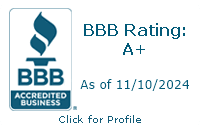3 Habits that Reduce Employee Productivity
 Every second matters in the world of entrepreneurship. Every minute wasted on unnecessary tasks brings your organization closer to financial problems. This holds true for startups and established businesses alike. Small business owners are a special breed of individuals who are directly involved in the day-to-day tasks of their organization. An owner should be focused on improving the overall business, rather than focusing on mundane tasks. Business consulting services can be utilized to implement the proper processes and systems to enable the owner to focus on the bigger picture of operating a company. International Development Services is a consulting firm that offers assistance to small and medium-size businesses across the U.S.
Every second matters in the world of entrepreneurship. Every minute wasted on unnecessary tasks brings your organization closer to financial problems. This holds true for startups and established businesses alike. Small business owners are a special breed of individuals who are directly involved in the day-to-day tasks of their organization. An owner should be focused on improving the overall business, rather than focusing on mundane tasks. Business consulting services can be utilized to implement the proper processes and systems to enable the owner to focus on the bigger picture of operating a company. International Development Services is a consulting firm that offers assistance to small and medium-size businesses across the U.S.
In small businesses, stress can reach maximum levels at a moment’s notice, which can lead to employees quitting. When this happens, productivity gaps occur which can put a damper on profits. This can disrupt the plans you’ve had for the future of your organization.
Bad habits in leadership are sometimes the root cause of these disruptions and imbalances. The following habits can have a negative impact on your team’s productivity.
Micromanaging Your Employees
Micromanagement is typically seen in a negative light, and for good reason. It’s the ideal way to waste your time and the time of your employees. This can quickly annoy and alienate your team. A great manager doesn’t have to be completely hands-off, but should have a good sense of when interaction is needed and when it isn’t. The majority of your time should be focused on high-level planning and managing the systems you have put in place. Set the goals you want your employees to achieve, and allow them to strategize how to get it done. If you can’t trust your team to do that, then you should reconsider the individuals you’ve hired. Business consulting services can be employed to develop better processes and systems to improve workplace efficiency.
Neglecting the Individual
Establishing a general work culture may appeal to the majority, but not everyone. Expect for some employees to work differently than others. For instance, your account manager may find multiple team meetings throughout the week to be beneficial for exchanging information, while your Web developer may find it aggravating and a waste of time. Your accountant may be a morning person, while your designer may work best during the afternoon. It’s up to you to learn the strengths and weaknesses of your employees, so that you can ensure they’re working optimally.
Not Clarifying Your Expectations
Be descriptive about the results you want for the tasks you assign. Don’t expect employees to know exactly what you want without you telling them. Some leaders will ask for a deliverable, only to receive work that isn’t as they imagined. Make your expectations clear and concise, so that projects don’t have to be redone.
If your workplace lacks in productivity, consider working with a firm that offers business consulting services.


